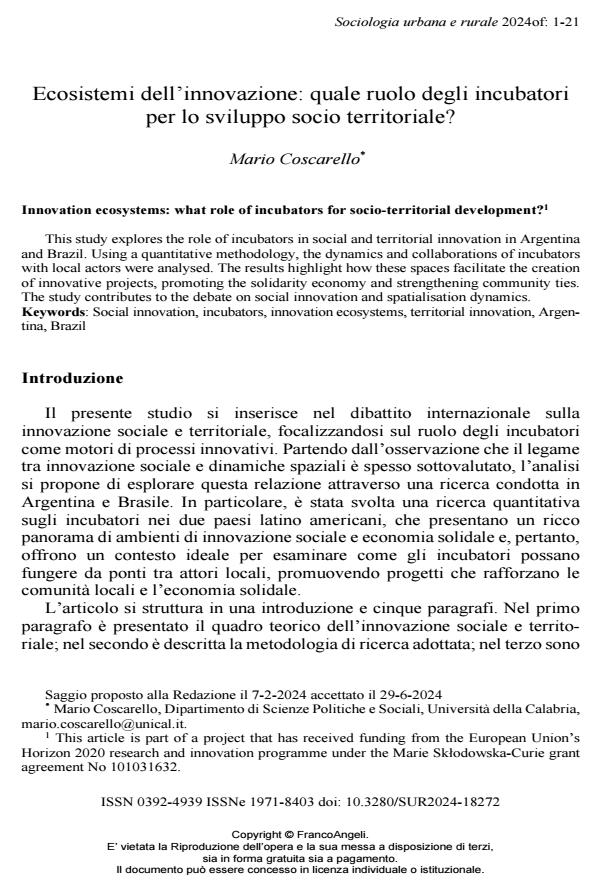Innovation ecosystems: what role of incubators for socio-territorial development?
Journal title SOCIOLOGIA URBANA E RURALE
Author/s Mario Coscarello
Online First 10/30/2024 Issue 2024/135
Language Italian Pages 21 P. 1-21 File size 271 KB
DOI 10.3280/SUR2024-18272
DOI is like a bar code for intellectual property: to have more infomation
click here
Below, you can see the article first page
If you want to buy this article in PDF format, you can do it, following the instructions to buy download credits

FrancoAngeli is member of Publishers International Linking Association, Inc (PILA), a not-for-profit association which run the CrossRef service enabling links to and from online scholarly content.
Innovation ecosystems: what role of incubators for socio-territorial development?
This study explores the role of incubators in social and territorial innovation in Argentina and Brazil. Using a quantitative methodology, the dynamics and collaborations of incubators with local actors were analysed. The results highlight how these spaces facilitate the creation of innovative projects, promoting the solidarity economy and strengthening community ties.
The study contributes to the debate on social innovation and spatialisation dynamics.
Keywords: Social innovation; incubators; innovation ecosystems; territorial innovation; Argentina; Brazil;
Mario Coscarello, Ecosistemi dell’innovazione: quale ruolo degli incubatori per lo sviluppo socio territoriale? in "SOCIOLOGIA URBANA E RURALE" 135/2024, pp 1-21, DOI: 10.3280/SUR2024-18272